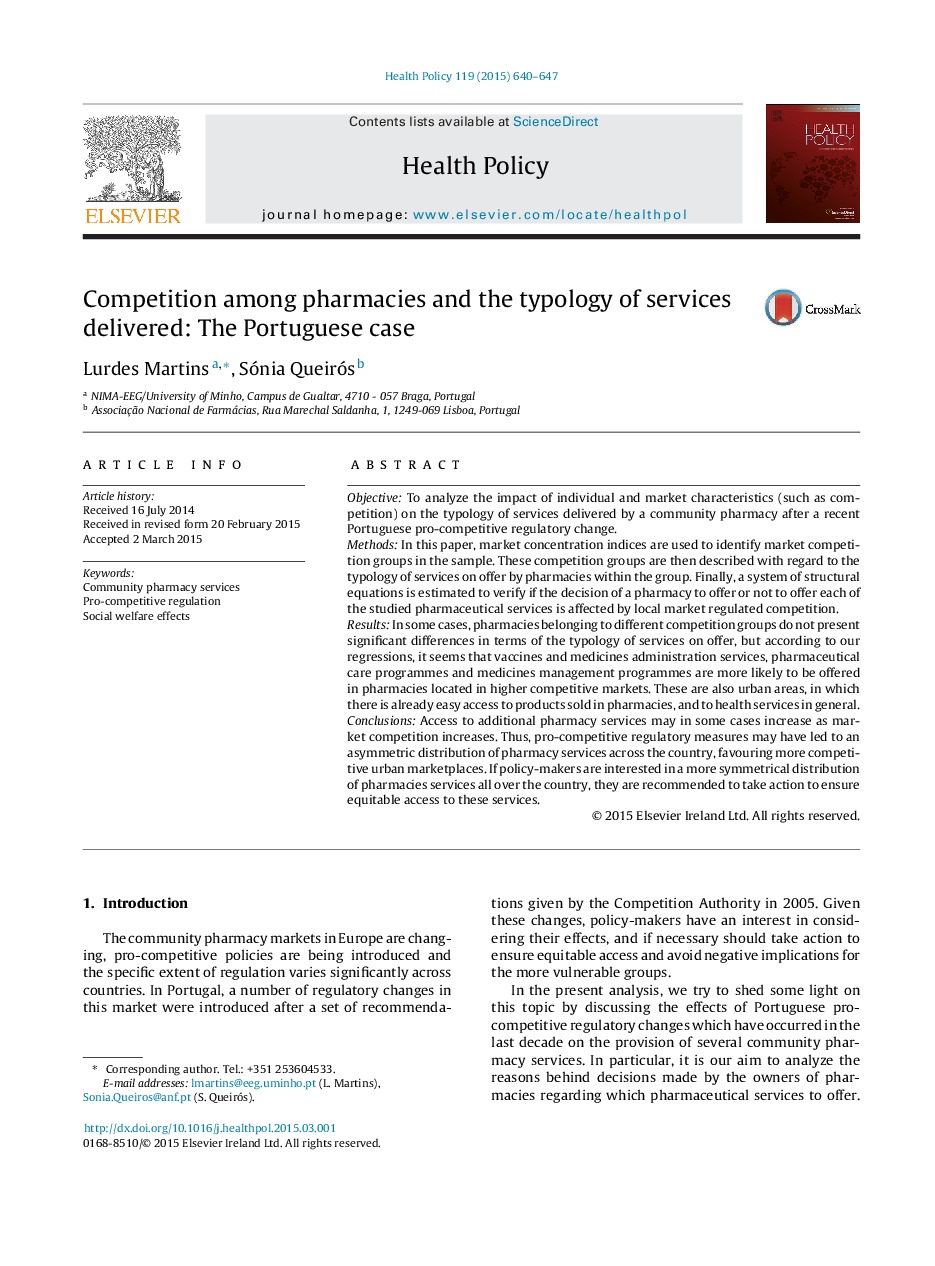| Article ID | Journal | Published Year | Pages | File Type |
|---|---|---|---|---|
| 6239177 | Health Policy | 2015 | 8 Pages |
â¢Over this decade Portuguese pharmacies have expanded the scope of their activity.â¢They offer, among others, medication delivery, smoking cessation support or influenza vaccinations.â¢The availability of some of these services increased as regulated competition increased.â¢The diffusion pattern of these services reinforced health services regional disparities.â¢Equitable access to these services is not guaranteed by an unregulated provision.
ObjectiveTo analyze the impact of individual and market characteristics (such as competition) on the typology of services delivered by a community pharmacy after a recent Portuguese pro-competitive regulatory change.MethodsIn this paper, market concentration indices are used to identify market competition groups in the sample. These competition groups are then described with regard to the typology of services on offer by pharmacies within the group. Finally, a system of structural equations is estimated to verify if the decision of a pharmacy to offer or not to offer each of the studied pharmaceutical services is affected by local market regulated competition.ResultsIn some cases, pharmacies belonging to different competition groups do not present significant differences in terms of the typology of services on offer, but according to our regressions, it seems that vaccines and medicines administration services, pharmaceutical care programmes and medicines management programmes are more likely to be offered in pharmacies located in higher competitive markets. These are also urban areas, in which there is already easy access to products sold in pharmacies, and to health services in general.ConclusionsAccess to additional pharmacy services may in some cases increase as market competition increases. Thus, pro-competitive regulatory measures may have led to an asymmetric distribution of pharmacy services across the country, favouring more competitive urban marketplaces. If policy-makers are interested in a more symmetrical distribution of pharmacies services all over the country, they are recommended to take action to ensure equitable access to these services.
